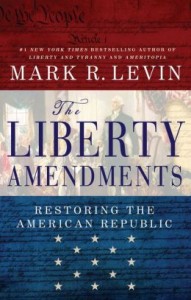Patrick O’Hearn, David Helpling and Jon Jenkins.
There, I said it.
Now to backtrack a bit. I started the MFNA web site in 1995 as a means to teach myself HTML and (the then new) web technologies. In the beginning it was pretty much a site filled with links to other sites. I enjoyed finding new music, and began writing reviews. Writing reviews became an offshoot, and I wrote reviews for other sites as well as my own.
For a while, the web site became a central part and focus of my life; I had become divorced, and it helped fill the time. It also became a way to contact others with an interest in the same kind of music. Let’s be honest: “New Age Music” (a term I loathe, by the way) isn’t “mainstream.” Therefore, it’s hard to find like-minded folk. Admitting to liking it is almost a way to embarrass oneself in public.
But I do. I can list other artists whose music I enjoy on an ongoing basis: Vangelis, Checkfield (defunct), Steve Roach, Erik Wøllo, to name a few. These days, most of my listening occurs on the Internet, where I listen/subscribe to several services and podcasts. Chief among these is Music From The Hearts of Space, the unpredictable Spacemusic.nl (and its bookend, Fresh Air) from the Netherlands, and Australian Ultima Thule. It is truly a global world in some respects!
The sites mentioned above provide me with a constant flow of new music – and when I’m out running, new music is a special joy to experience – but I must come back to the title of this entry.
There is something intangible and indescribable about the music of Patrick O’Hearn and

The So Flows Sessions by Patrick O’Hearn
the duo of David Helpling and Jon Jenkins (oh, the two as solo artists have some outstanding work as well).
As I review the different devices I use to listen to music (a conglomeration of computers, tablets, iPods, etc.) I find that each and every one of them contains works by these artists. In random rotation, whenever one of these tracks begins I am instantly transported to a place of peace, serenity and bliss. Even the “darker” tunes leave me feeling comforted and satisfied.
It’s rare that I purchase music these days, as the podcasts and Internet broadcasts fill up so much of my listening time, but I own releases by all of these artists. This article isn’t a review of their music, specific albums or even an attempt to rate them with their peers. It’s merely an appreciation of the pleasure they’ve given me over the years, with the hope they will continue to create more.


 But even Madison knew that the system wasn’t perfect. He knew that people and organizations naturally seek to grow in size, influence and power. Thus, built into the Constitution was Article V, which details the mechanism for how the Constitution may be amended. It states,
But even Madison knew that the system wasn’t perfect. He knew that people and organizations naturally seek to grow in size, influence and power. Thus, built into the Constitution was Article V, which details the mechanism for how the Constitution may be amended. It states,